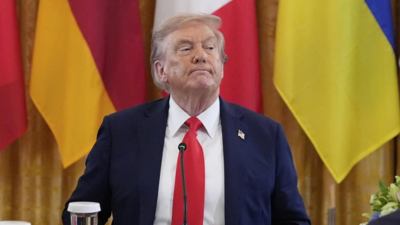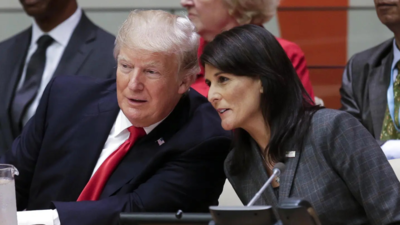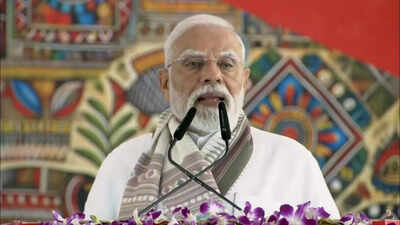TOI correspondent from Washington: The Trump White House has begun to use the term “sanctions” to describe the additional 25 per cent penalty on top of the 25 per cent tariffs imposed on India, aggravating the growing political and diplomatic differences with New Delhi. White House spokesperson Karoline Leavitt on Tuesday referred to President Trump’s “sanctions on India” in his effort to end the Russia-Ukraine war, echoing the MAGA supremo who last week described the additional penalty as “secondary sanctions.”Sanctions are typically a foreign policy and national security tool used to apply political pressure on countries to change their behavior, unlike tariffs, whose main purpose is to raise revenue for the government and to protect domestic industries from foreign competition by making imported goods more expensive.Effectively, the Trump administration has now imposed both tariffs (25 per cent taxes) and sanctions (25 per cent penalty) on India. With Washington postponing trade talks with India which was scheduled for August 25 and no quick or clear resolution of the Russia-Ukraine war, it looks like New Delhi will have to live with 50 per cent taxes on its exports to the US in the near future.The US last imposed formal sanctions on India in the aftermath of India’s 1998 nuclear tests. The sanctions, under the Arms Export Control Act (also known as the Glenn Amendment), resulted, among other punitive measures, in the termination of US foreign assistance and military financing, denial of US government credits and credit guarantee, opposition to loans for India from international financial institutions, and denial of exports of certain “dual-use” goods and technologies that could have nuclear or missile applications.While the Trump administration has not gone beyond imposing tariff penalties, some analysts have cautioned against the use of the term sanctions because of the negative connotations and memories associated with the 1998 episode. “Let’s just say that if US officials don’t understand why references to “sanctions,” much less actual sanctions, are neuralgic for Delhi, they had best learn some history quick,” said Evan Feigenbaum, a former state department official who was involved in the US-India civil nuclear deal in 2008.It took nearly a decade to overcome those sanctions, with the 2008 nuclear deal erasing more than three decades of distrust and misgivings — before the current fiasco.






